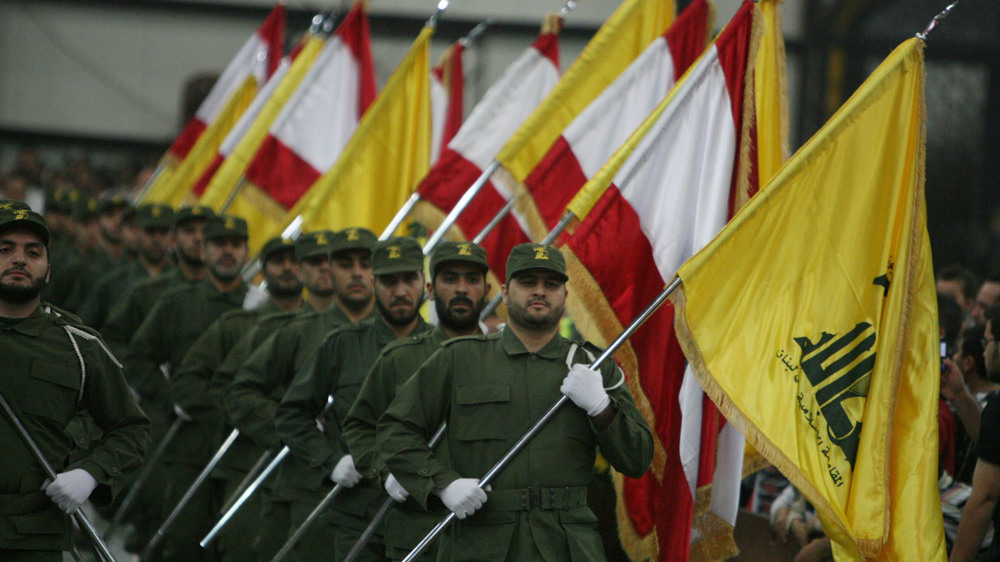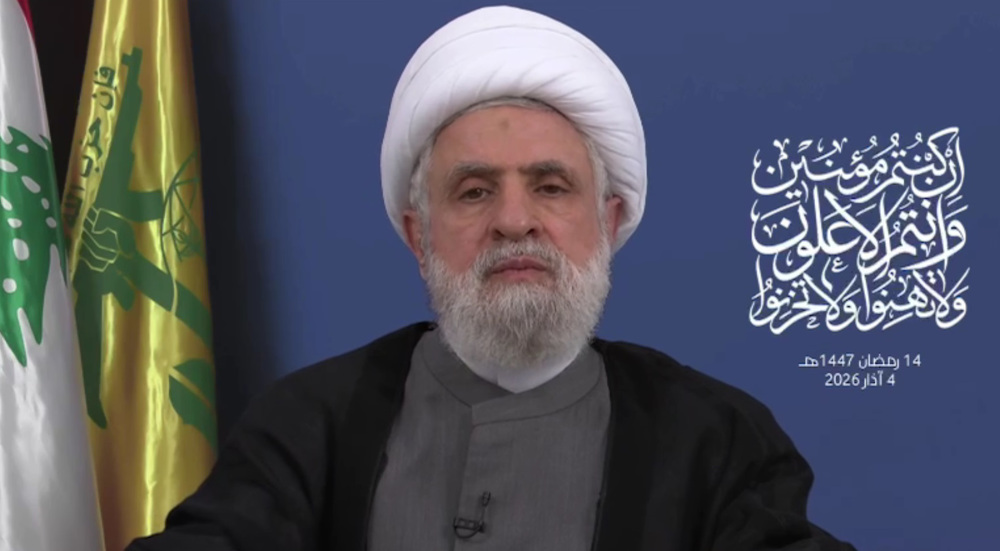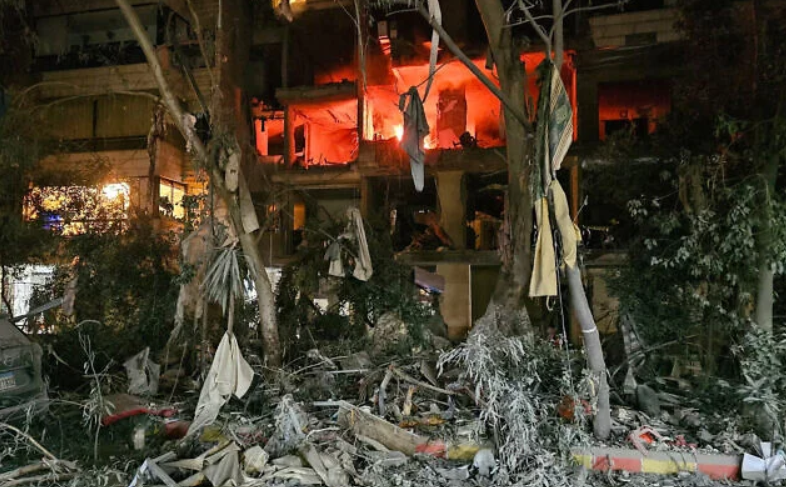Foreign, domestic elements trying to lay siege on Lebanese resistance: Journalist
A well-known Lebanese journalist warns about an underway campaign that seeks to alter the country’s political configuration in a way that would mount excessive pressure on the resistance.
“An external political campaign has been formed since the beginning of the country’s crisis with the aim of using the critical situation to create a new political reality in order to lay siege on the Lebanese resistance,” Nasser Qandil, a well-known journalist and editor with the Lebanese newspaper al-Binaa, told Press TV in an interview on Saturday.
He said the campaign had been formed with the support of media outlets and civil organizations as well as elements both inside and outside the government.
Commenting on the foreign sources’ contribution to the campaign, he identified the United States and France as the countries that have potentially fomented the crisis.
The US incessantly tries to interfere in Lebanon’s domestic efforts in favor of the Israeli regime.
It has imposed economic sanctions on Lebanon to weaken the Lebanese resistance movement of Hezbollah, which has defended the country against two Israeli wars and repeated Israeli violations. France, Lebanon’s former colonial ruler is, meanwhile, accused of trying to impose its political will on the country by pressing it to implement certain “reforms.”
Qandil said Washington and Paris only claimed to seek Lebanon’s betterment, while they take no action that could mirror their expression of such interest.
He cited a recent overflight of Lebanon’s coastline by an American drone, saying the UAV had patrolled the area in line with Washington’s military ambitions for the country, not to pursue an alleged Russian submarine as Washington has claimed.
At the same time as it tries to find a military foothold in Lebanon, the US also tries to weaken the Lebanese currency against the dollar so the Lebanese army grows more dependent on financial assistance, the journalist remarked.
Russia, however, has tried to play a “positive role” towards resolution of the Lebanese crisis by recently hosting a Hezbollah delegation in Moscow and advising various parties in Lebanon to meet half-way towards formation of an official cabinet.
Lebanon is experiencing its worst economic crisis in decades, compounded by the COVID-19 pandemic. Prices are skyrocketing and more than half of the population is now living below the poverty line.
Since the Lebanese government formally resigned after a massive explosion in Beirut port last August, domestic political divisions and foreign pressure have hindered the formation of a formal cabinet.
Qandil refused to consider the crisis and the protests that it has brought about to be simply “self-sprung,” saying the national currency’s devaluation could not be tied to economic factors alone. “There are political efforts underway to pressure the market, thus provoking the people and paving the way for anarchy and insecurity,” he noted.
Delivering a speech on Thursday, Hezbollah’s Secretary General Sayyed Hassan Nasrallah also identified the pressure that the United States was applying to Lebanon as a main factor driving the country’s crisis.
The United States wants for Lebanon to “be placed in the US-Israel axis” in the same way that such regional countries as the United Arab Emirates and Bahrain did by normalizing their relations with the Israeli regime through Washington’s facilitation, Nasrallah stated.
Qandil voiced support for the solutions that have been proposed by Nasrallah towards ending the crisis, including reformation of the country’s bureaucratic and financial structure and potential formation of a technocratic-political government.
He then addressed domestic elements’ contribution to the crisis, denouncing the central bank as a “principal element” behind the situation that played a role in its creation by failing to protect the value of the national currency, people’s deposits, and the banking structure.
The government and the parliament’s generous handouts, in turn, played a role in increasing pressure on the central bank, he regretted.
'We warned repeatedly about the limit to our patience': Hezbollah leader
IRGC announces 'blinding' US, Israel's eye in region; vows harsher retaliation coming
Iraqi resistance leader urges Americans to ‘reclaim’ country from Israeli ‘puppet Trump
Iran blasts US-Israeli use of autonomous killer systems against civilians as 'war crime'
US-Israeli aggression left Tehran with no choice but to defend Itself: President Pezeshkian
Iran urges immediate intl. action against US attacks on schools
Iraq won’t allow terror groups to cross border into Iran: Security official
Iran’s security chief: Does America come first or Israel with 500 US soldiers killed?










 This makes it easy to access the Press TV website
This makes it easy to access the Press TV website